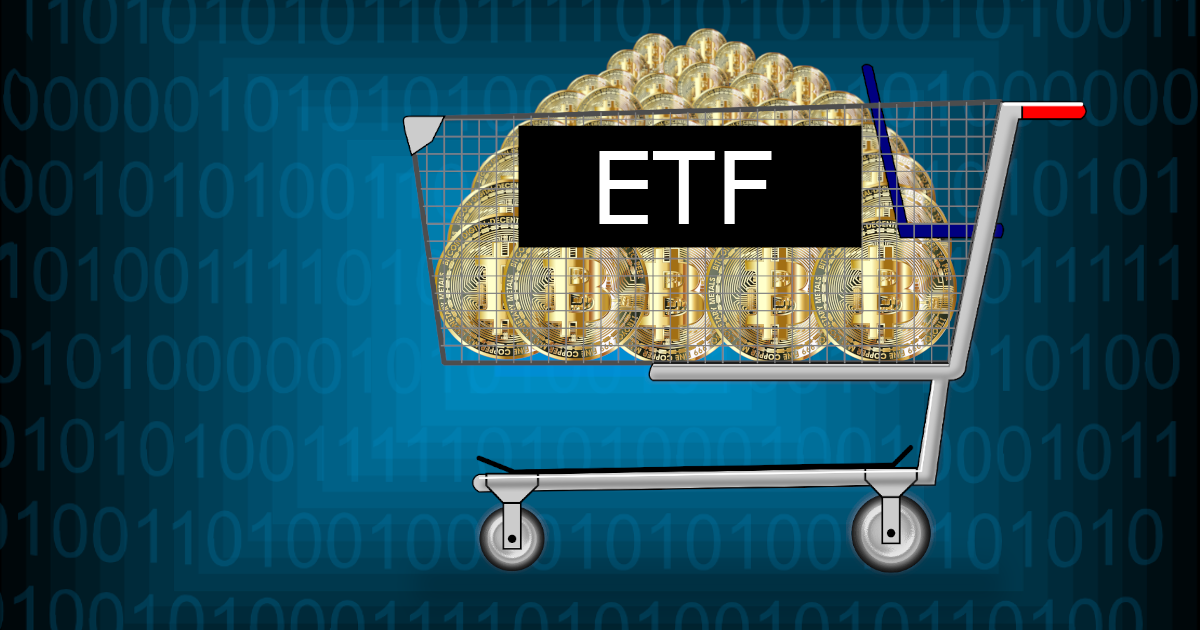

Bitcoin ETFs:
Advancement or Setback for Crypto?
Buy the Rumor...
On Wednesday January 10, the SEC gave approval for the launch of bitcoin spot ETFs (exchange traded funds), that track the current market price of bitcoin. The next day, on Thursday the 11th, eleven spot bitcoin ETFs began trading. A decade in the making, Cameron and Tyler Winklevoss, co-founders of crypto exchange Gemini, were the first to file an application with the SEC to create a spot bitcoin ETF in 2013. Though bitcoin ETFs based on futures contracts were approved in 2021, four years after the launch of bitcoin futures contracts, spot bitcoin ETFs have been repeatedly rejected by the SEC on investor protection concerns. Upon approving the spot bitcoin ETFs, SEC Chair Gary Gensler said that the approvals were not an endorsement and that bitcoin is a "speculative, volatile asset.” Though crypto proponents have heralded the arrival of spot ETFs as increasing acceptance of bitcoin, and anticipate money allocated towards bitcoin ETFs will help support the price of the proto-crypto asset, the structure of ETFs may not be aligned with the originally intended vision of its creator or have an impact on price action.
Passive Reflection
ETF shareholders have a claim to the value of their shares, but do not have any ownership in the underlying assets of the fund. Just as stock ETF shareholders don’t own the stocks held by equity ETFs, bitcoin ETF shareholders have no ownership of bitcoin. The value of an ETF is determined by the total value of the holdings within it. ETFs are evaluated on how closely their price movements reflect the value of the underlying assets. ETFs with a lower tracking error are considered more efficient than ones with a higher tracking error. In this way, an ETF acts like a mirror to the market it tracks, with ETF buyers and sellers having no effect on the price market for the underlying assets. Prices for the underlying assets of an ETF are influenced by participants in the actual market who are exchanging ownership of the assets. ETF buyers and sellers will always receive prices that reflect the value of the ETF holdings at the time of the transaction.
Unaffected Fundamentals
An ETF simply acts as a basket that holds stocks or other assets. The value of individual assets exist separately from ETFs they may be held in. Though ETFs have value because they hold assets such as stocks or gold, stocks and gold don’t have value because they are held in an ETF. If all ETFs that track the S&P 500 shutdown, the stocks held within them would retain their value. Stocks of companies have intrinsic value based on expected future cash flows. Whether or not a stock is included in an ETF does not affect its sales or expenses. So while inclusion in an ETF may bring increased exposure to a stock, it will have no effect on its actual value as a company. ETFs that hold bitcoin will also have no direct effect on its value or the prices paid by those exchanging ownership in the actual market.
Sell the News…
Even though bitcoin ETFs will provide increased access to those who wish to profit from its price changes, it will not provide opportunities for it to be adopted in the way it was intended. Since all ETF sales and purchases are made in established currencies with no ownership exchange of the underlying asset, ETFs may not move bitcoin closer to widespread adoption as money. Also, because of how ETFs are structured, money flowing into bitcoin ETFs will have no direct impact on the price or value of bitcoin. Satoshi, bitcoin’s creator, envisioned that its adoption as currency would be incentivized by the blockchain method of recording transactions on a digital ledger maintained by a network of voluntary and independent participants. Bitcoin exchanges were initially intended to be directly between a sender and receiver, with no intermediary in between such as a bank or payments processor. It may be ironic then, that most crypto transactions occur on centralized exchanges, large institutions offer custody services, and ETFs now offer a way to participate in the spot price market without owning crypto. In fact, non-ownership may be a large part of the appeal of ETFs, which can avoid risks associated with holding bitcoin in a digital wallet, such as hacking or fraudulent behavior by crypto exchanges.
February 7, 2024
More on bitcoin:
Cryo Crypto: Frozen Funds, Bankruptcy & Conflict
Crypto Markets: Low Regulation High Risk
Crypto Quantity: Satoshi’s Focus on Scarcity
Bitcoin & Inflation: Missing Links in Satoshi’s Vision
Bitcoin Beginnings: Satoshi’s Self-Fulfilling Prophecy
Bitcoin Correlations: Crypto Tethered to Stocks
Washed Out: Phony Crypto Volume
Markets Demystified is published on the first Wednesday of each month, and explores how stock market investing can relate to personal finance.
Thanks for reading!
Aesop Advisor LLC advertisements including newsletters and other publications are for informational purposes only. They do not attempt to predict future stock market moves and are not intended as individual investment advice. Aesop Advisor LLC newsletters and publications are not recommendations to buy, sell or hold any asset and are not intended as actionable investment advice or market timing. Equities references generally refer to the overall stock market, though if individual companies are mentioned, it is not a recommendation to buy, sell, or hold shares of the company. Unless otherwise indicated, terms including "stocks", the "stock market", and "market(s)" refer to Standard & Poor's 500 index. All investments involve risk and the past performance of a security or financial product does not guarantee future results or returns. While diversification may help spread risk, it does not assure a profit or protect against loss. There is always the potential of losing money when you invest in securities or other financial products. Publications and advertisements from Aesop Advisor LLC are not intended as investment, legal, or tax advice. Although gathered from sources believed to be reliable, Aesop Advisor LLC cannot guarantee the accuracy and completeness of data or information presented in publications and advertisements. This is an advertisement.